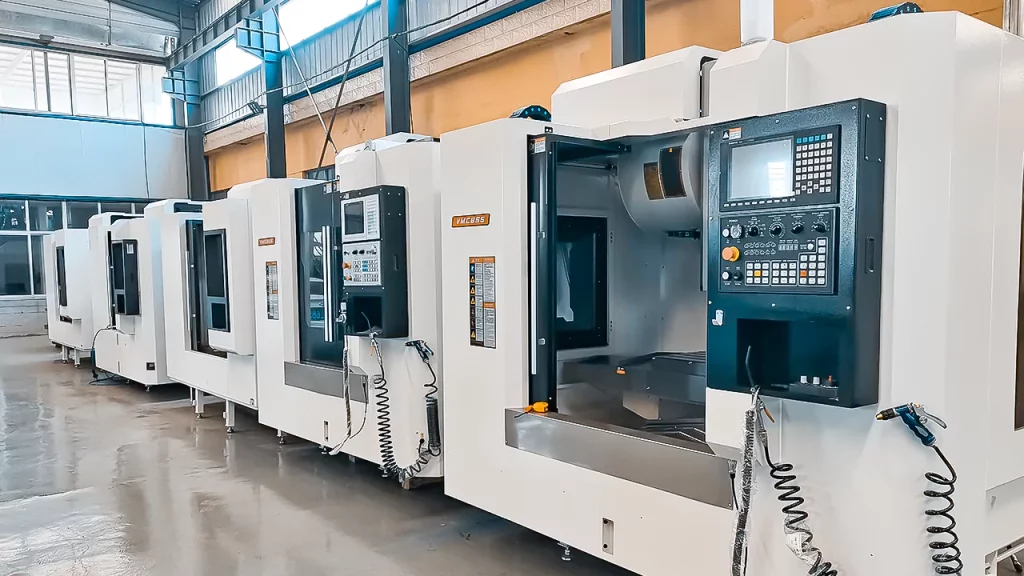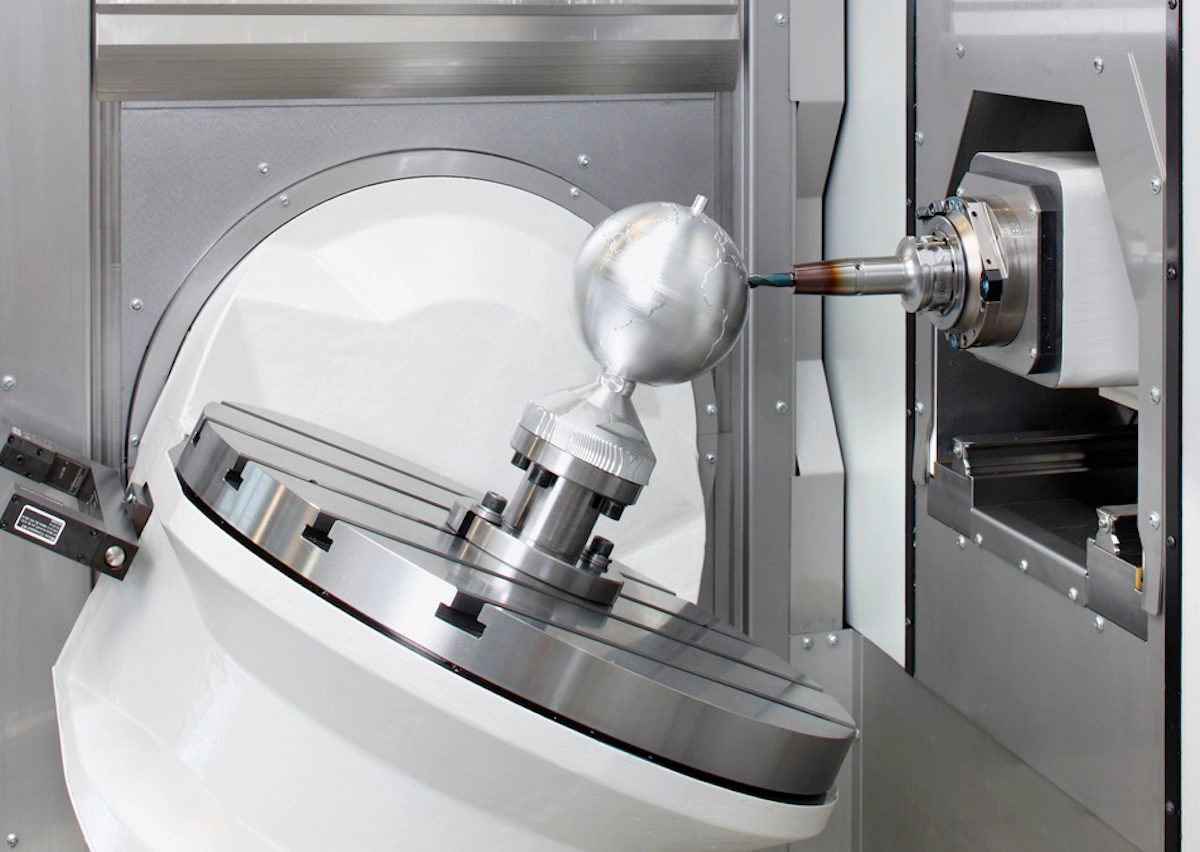cnc turning service vs. conventional methods: which should you choose?
Raise Your Production High Quality With Professional CNC Machining Services in Milling and Turning
CNC machining services in milling and transforming offer significant benefits for making operations. These processes assure accuracy and efficiency, important for producing premium components. With innovative modern technology and skilled machinists, organizations can attain remarkable finishes and detailed styles. Recognizing the subtleties of these services is essential for optimizing their advantages. What elements should companies take into consideration when choosing the ideal CNC machining partner?
Understanding CNC Machining and Its Benefits
Although numerous manufacturing procedures exist, CNC machining stands out as a result of its precision and efficiency - cnc turning service. This sophisticated production technique makes use of computer-controlled devices to generate complex get rid of marginal human treatment. By automating the machining procedure, it considerably lowers the likelihood of human error, guaranteeing constant top quality across production runs
CNC machining supplies countless benefits that appeal to different markets. To start with, it accommodates complex styles that standard approaches might have a hard time to accomplish. Furthermore, the speed of production is improved, enabling for quicker turn-around times and raised result. In addition, CNC machining is functional, ideal for a variety of products, consisting of steels, plastics, and compounds.
The process enables for simple adjustments, enabling rapid prototyping and personalization without substantial retooling. As a result, companies can react quickly to market needs, making CNC machining a necessary part of modern-day production strategies.

The Importance of Precision in Milling Processes
Accuracy is crucial in crushing procedures, as it directly influences the accuracy of the final product. The option of materials additionally plays a considerable role, impacting how well the machining process satisfies defined tolerance requirements. Understanding these aspects is essential for achieving suitable cause CNC machining.
Role of Precision
Attaining high levels of accuracy is essential in milling processes, as also the tiniest deviation can result in substantial mistakes in the final product. Accuracy in CNC machining straight affects the performance, functionality, and durability of the manufactured elements. Exact milling assurances that measurements and tolerances are satisfied, which is crucial for components that should mesh effortlessly in assembly or operate under particular problems. In addition, the role of accuracy prolongs to lowering waste and revamp, thereby improving general manufacturing performance. Advanced CNC machines geared up with advanced software and tooling contribute to attaining the required precision. By prioritizing accuracy in milling, producers can guarantee high-grade outputs that satisfy rigid market criteria and customer assumptions.

Material Selection Influence
Material option plays a critical function in the milling procedure, affecting both the quality of the last item and the efficiency of manufacturing. Various materials show special homes such as hardness, tensile stamina, and machinability, which straight impact the milling strategy used. More challenging products may need customized tools and slower feed rates to stop device wear and maintain precision. Alternatively, softer materials can be grated at greater speeds however might do not have longevity. Additionally, the option of product can affect surface area finish and dimensional accuracy, demanding careful factor to consider by suppliers. Eventually, picking the appropriate material not just enhances item performance but likewise enhances the milling procedure, lowering waste and improving overall productivity.
Tolerance Criteria Relevance
While the option of products is important, adherence to tolerance criteria is just as critical in CNC machining procedures. Resistance standards dictate the allowable restrictions of variant in dimensions, making certain parts fit and work appropriately. In milling and transforming operations, specific tolerances improve item top quality, decrease waste, and reduce rework. When resistances are precisely kept, makers can accomplish constant outcomes, which is vital for industries such as aerospace, automobile, and clinical tools, where precision is vital. Deviations from established standards can bring about assembly concerns, compromised performance, and raised prices. Understanding and carrying out proper resistance criteria is basic for any type of CNC machining service looking for to preserve high production top quality and fulfill customer requirements effectively.
Enhancing Efficiency Through Advanced CNC Turning
Advanced CNC turning techniques considerably improve effectiveness in component production by making certain high accuracy in manufacturing. This raised accuracy not just improves the overall high quality of the components created but also adds to reduced manufacturing time. Therefore, suppliers can achieve better output while preserving stringent high quality criteria.
Precision in Part Creation
CNC transforming modern technology has changed precision in element creation, making it possible for producers to attain remarkable precision and effectiveness. Utilizing computer-controlled turrets, this sophisticated procedure carefully forms products right into elaborate layouts, making sure tight tolerances that meet demanding specifications. The automation integral in CNC transforming minimizes human error, leading to regularly high-grade components tailored to particular demands. On top of that, the capability to promptly change electronic layouts permits rapid iterations, improving the customization of components without compromising precision. Therefore, industries varying from aerospace to auto benefit significantly from these innovations, as they can create complicated geometries effortlessly. Eventually, CNC turning stands as a foundation of contemporary manufacturing, driving precision and reliability in part creation.
Lowered Manufacturing Time

Key Technologies in CNC Machining
Many key innovations drive the efficiency and accuracy of CNC machining, enabling producers to produce intricate parts with high precision. Central to these advancements are Computer Helped Style (CAD) and Computer Helped Production (CAMERA) software program, which enhance the design-to-production process. CAD enables for elaborate styles to be produced and manipulated digitally, while CAM converts these layouts into device directions.
Further boosting accuracy are multi-axis machining facilities, which allow cutting tools to move along numerous axes look these up all at once, lowering the requirement for several setups - fast prototyping. Furthermore, innovations in tooling materials and coverings have enhanced longevity and performance, permitting better surface area coatings and expanded tool life
Automation modern technologies, consisting of robotics and intelligent software program, assist in real-time tracking and changes during manufacturing, making sure consistency and high quality. Collectively, these modern technologies not only boost production capacities however also add to the total reliability of CNC machining solutions.
The Role of Experienced Machinists in Top Quality Manufacturing
Competent machinists play a vital role in making certain the top quality and precision of CNC machining production. Their competence directly impacts the outcome of producing processes, as they translate technical illustrations, set up machines, and pick proper tools for each project. By possessing a deep understanding of machining principles, they can make real-time adjustments to maximize performance and keep tight resistances.
Competent machinists employ their problem-solving capabilities to identify and rectify problems throughout manufacturing, making certain and preventing flaws that the last items satisfy rigid high quality standards (cnc turning service). Their knowledge with numerous materials and machining methods allows them have a peek at this site to adapt to varied task needs, improving general efficiency
Additionally, these experts frequently collaborate with designers and engineers, giving beneficial understandings that add to the continuous renovation of manufacturing methods. Inevitably, the relevance of proficient machinists in CNC machining can not be overstated, as they form the foundation of top notch manufacturing procedures.
Reducing Waste and Optimizing Resources
Efficient CNC machining not just counts on the proficiency of knowledgeable machinists however additionally emphasizes the significance of lowering waste and optimizing resources throughout the production process. By utilizing innovative technologies and exact programming, makers can minimize material waste, guaranteeing that every piece of raw product is utilized successfully.
Incorporating approaches such as nesting, where parts are set up to optimize material use, can significantly decrease scrap manufacturing. Furthermore, real-time monitoring of device efficiency enables instant modifications, avoiding overflow and resource exhaustion.
In addition, implementing lasting practices, such as recycling steel shavings and utilizing environment-friendly materials, adds to both cost savings and environmental duty.
With these procedures, CNC machining services can enhance productivity while maintaining high-grade criteria, inevitably bring about an extra lasting and successful operation. By prioritizing resource optimization, organizations can achieve better effectiveness and a reduced ecological impact anchor in their manufacturing procedures.
Picking the Right CNC Machining Solution for Your Requirements
Exactly how does one identify the most effective CNC machining service for specific project demands? Choosing the appropriate CNC machining solution includes a number of critical considerations. Initially, task requirements, consisting of product types, tolerances, and dimensions, must be plainly defined. This ensures that the picked solution can fulfill the technological needs of the task.
Second, evaluating the provider's experience and experience in the appropriate market can provide insights right into their abilities. Examining past projects and client testimonials can better inform the decision.
Third, reviewing the available technology and machinery is crucial, as innovative equipment frequently causes greater precision and effectiveness.
Lastly, expense and turnaround time should be taken into consideration to assure the service straightens with monetary restrictions and due dates. By very carefully assessing these variables, companies can determine the CNC machining service that best fits their unique manufacturing needs.
Regularly Asked Inquiries
What Materials Can Be Utilized in CNC Machining?
CNC machining can use a selection of materials including metals like aluminum, steel, and titanium, along with plastics such as acrylic and nylon, and composites, giving convenience for different production applications and markets.
For how long Does a Typical CNC Machining Job Take?
A regular CNC machining job can take anywhere from a couple of days to numerous weeks, depending upon factors such as complexity, product kind, style requirements, and production quantity. Timelines differ based on task requirements and seriousness.
Are CNC Machining Services Eco-friendly?
CNC machining services can be eco-friendly, particularly when using sustainable materials and efficient processes. Waste reduction and energy-efficient equipment add to a lower ecological impact, making these services a sensible option for eco-conscious manufacturing.
What Industries Typically Use CNC Machining Solutions?
CNC machining solutions are frequently made use of in various industries, including vehicle, aerospace, electronics, medical gadgets, and production. These industries depend on accuracy machining for parts that call for high accuracy, effectiveness, and repeatability in production processes.
Exactly How Can I Prepare My Designs for CNC Machining?
To prepare styles for CNC machining, one need to ensure correct documents layouts, maximize dimensions for resistance, incorporate essential machining features, and think about product buildings. Additionally, supplying thorough paperwork can improve the production process's performance and accuracy.
While the choice of products is important, adherence to tolerance criteria is similarly critical in CNC machining processes. Experienced machinists play an essential duty in making sure the quality and accuracy of CNC machining manufacturing. A normal CNC machining job can take anywhere from a few days to a number of weeks, depending on elements such as complexity, material kind, style specs, and production quantity. CNC machining services can be environmentally friendly, specifically when making use of efficient procedures and sustainable materials. To prepare styles for CNC machining, one need to assure appropriate data styles, maximize measurements for tolerance, integrate needed machining functions, and think about product buildings.